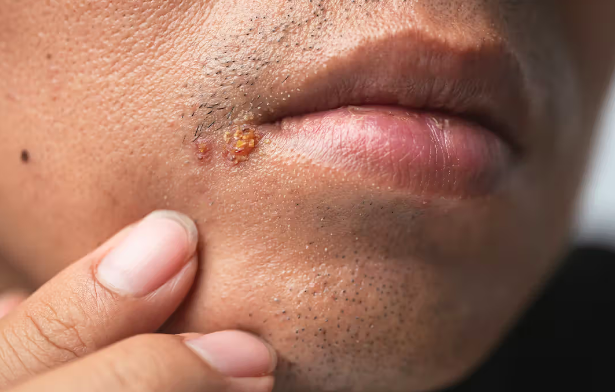Have you just met that new special someone and you’re already head over heels in love and you’re also preparing for the first sexual encounter?
Caution is the word, please. This is because you’re just getting to know that new special someone and there are plenty things to know about them, especially when it comes to their sexual history and how it has affected their health and, how, by extension, it can impact your own health, too.
According to physicians, while many sexually-transmitted infections and diseases [STIs/STDs] are curable if medically treated early enough, some STIs — especially those caused by virus — have no cure and can only be managed through rigorous monitoring that include being on medication for life.
herpes infection can cause sores or breaks in the skin or lining of the mouth, vagina, and rectum
When it comes to viral infections, you’re most probably aware of HIV/AIDS. But there’s also another big one that is hardly thought about outside of the medical circles. That viral STI is herpes.
What is worse, many people infected with herpes don’t even know that they are carrying the deadly disease! This is because such people are asymptomatic, that is, their disease is just sitting quietly in their body without showing any visible symptom!
So, only medical screening can reveal the true state of things, both to you and also to your lover.
What is herpes?
According to immunologists, herpes simplex is a virus that causes skin infections.
“The infection lasts your lifetime, and it causes painful or itchy sores and blisters that come and go,” Dr. Tina Mutfwang, a Jos, Plateau State-based physician, explains.
She adds that herpes simplex virus (HSV) typically doesn’t cause severe problems, “But it can be dangerous in infants and people with weakened immune systems.”
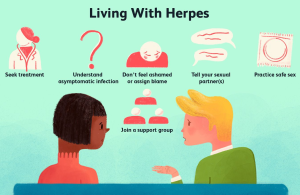
What happens if you have herpes?
Experts say herpes infection can cause sores or breaks in the skin or lining of the mouth, vagina, and rectum.
“As terrible as it is, the sores provide a leeway for HIV to enter the body. So, once you’re infected with herpes, your body risks huge exposure for opportunistic infections, too,” Dr. Mutfwang posits.
She adds that even without visible sores, herpes increases the number of immune cells in the lining of the genitals, warning, “HIV targets immune cells for entry into the body by getting inside the CD4 cell.
The surest way to prevent genital herpes is not to have sex or to have sex only with someone who’s not infected and who has sex only with you
“Once it get thee, it makes copies of itself. Then, HIV kills the CD4 cell and the new HIV copies find other CD4 cells to get inside and start the cycle again.
“HIV kills immune system cells that help the body fight infections and diseases,” another physician, Dr. Dare Afolabi explains further.
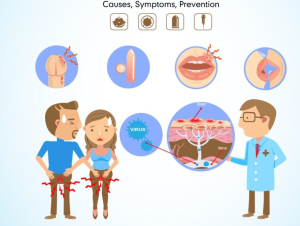
How do people get genital herpes?
Infections are transmitted through contact with HSV in herpes lesions, mucosal surfaces, genital secretions, or oral secretions, experts say.
“Herpes can be shed from normal-appearing oral or genital mucosa or skin,” immunologists warn.
They add that, generally, a person can only get a strain of herpes [HSV-2] infection during genital contact [sex] with someone who has a genital HSV-2 infection.
“In the same vein, receiving oral sex from a person with an oral herpes simplex virus-1 (HSV-1) infection can result in getting a genital HSV-1 infection,” the doctors warn.
And even if your sex partner doesn’t have visible herpes symptoms, doctors warn that “Transmission commonly occurs from contact with an infected partner who does not have visible lesions and who may not know that he or she is infected!”
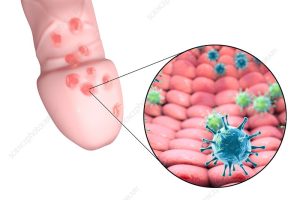
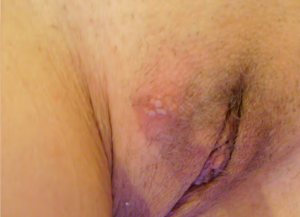
What are the symptoms of genital herpes?
Most individuals infected with HSV are asymptomatic or have very mild symptoms that go unnoticed or are mistaken for another skin condition.
“When symptoms do occur, herpes lesions typically appear as one or more vesicles, or small blisters, on or around the genitals, rectum or mouth.
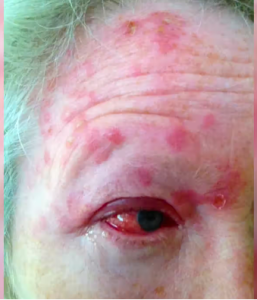
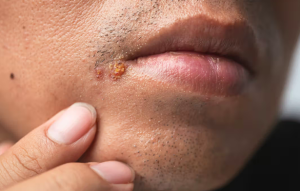
“The average incubation period for an initial herpes infection is four days after exposure. The vesicles break and leave painful ulcers that may take two to four weeks to heal after the initial herpes infection.
“Experiencing these symptoms is referred to as having a first herpes outbreak or episode,” Dr. Afolabi says.
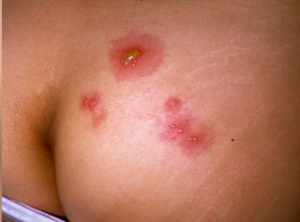
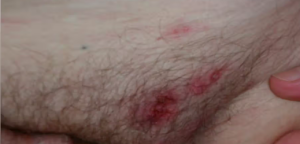
Prevention
The surest way to prevent genital herpes is not to have sex or to have sex only with someone who’s not infected and who has sex only with you, the medics say.
They also note that though condoms can reduce your risk of getting genital herpes if used the right way every single time you have sex, “But a condom protects only the area of the body that it covers.”
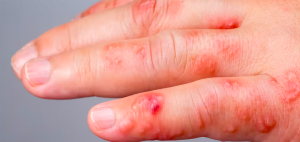
Therefore, if your lover has herpes in the mouth, forehead, arms, fingers or any part of the body not protected by condom, then you stand a huge risk of being infected.

